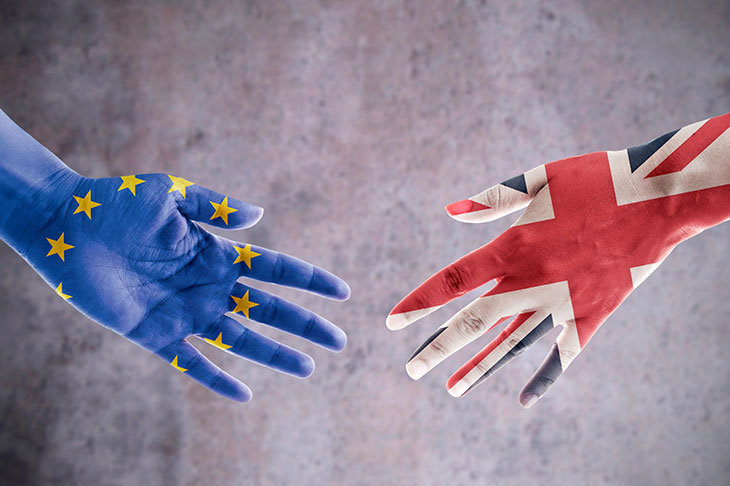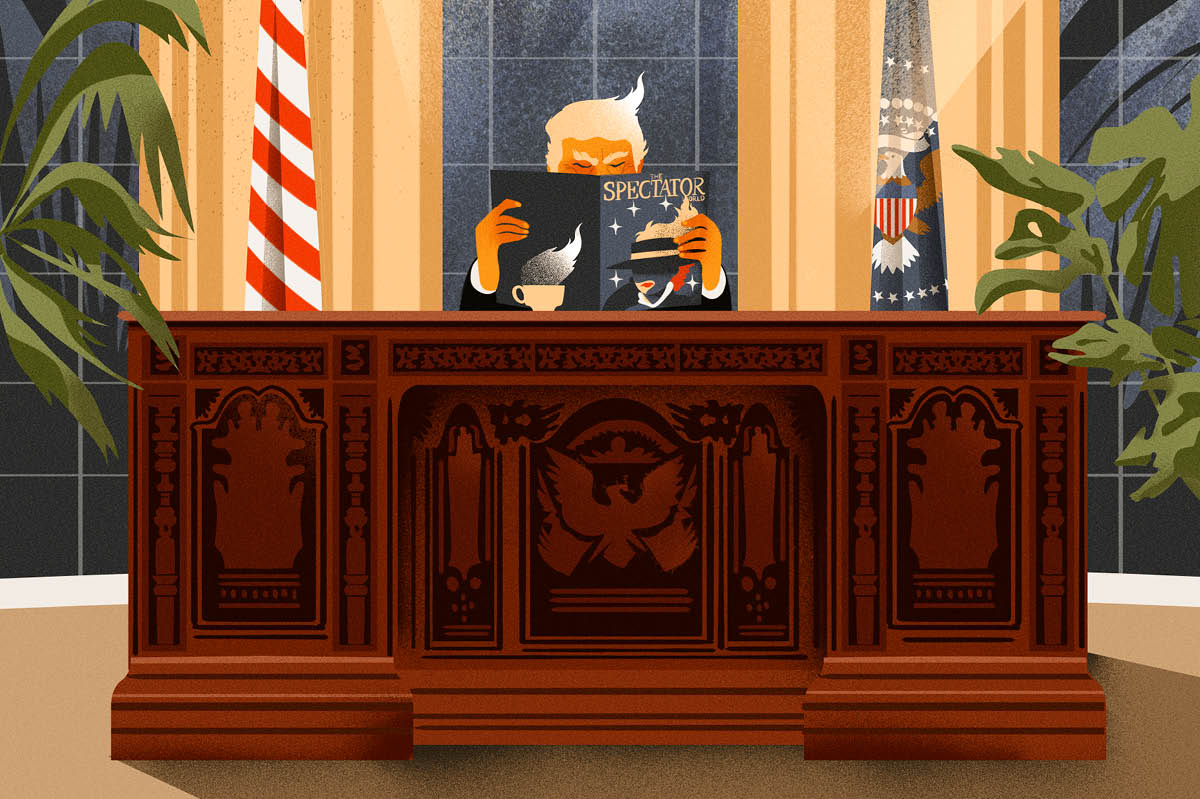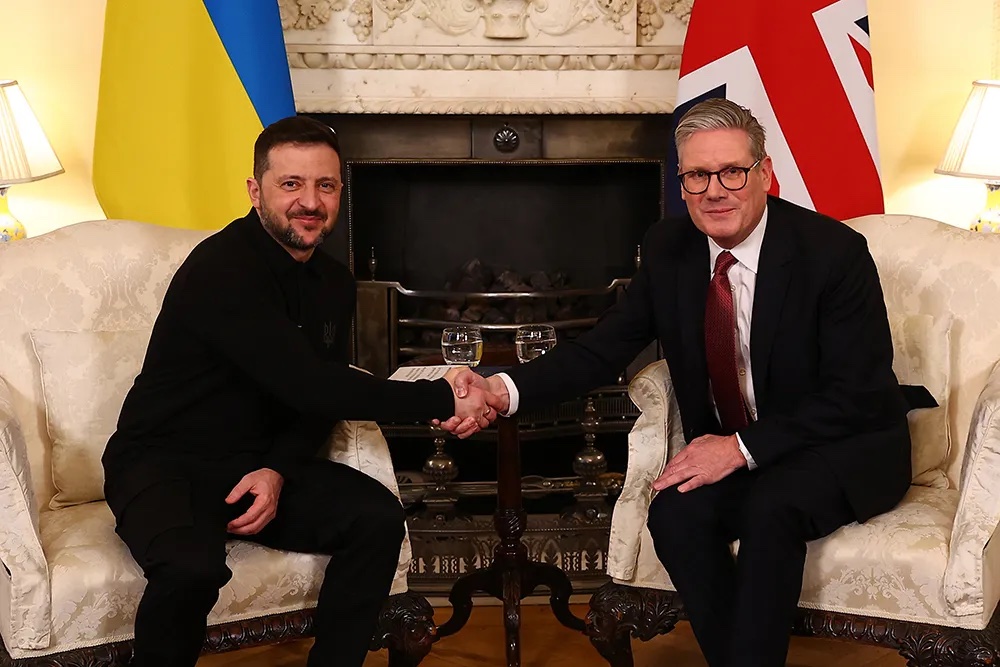Expect the unexpected has been the rule in British politics these last few years. But even so, few would have predicted the events of the past week. Last Tuesday evening the Brexit talks seemed dead. Even the most mild-mannered figures in Downing Street held out little hope of a deal this side of an election. That all began to shift, though, after Boris Johnson and Leo Varadkar met last Thursday.
What changed was that they both realized that the other was serious about a deal. They stopped seeing each other’s proposals as a trap and began engaging with them. This doesn’t guarantee a deal, though. Boris Johnson and Leo Varadkar’s desire to get this done is a necessary but not sufficient condition for an agreement.
Boris Johnson is acutely aware that he needs to be able to get whatever he signs up to through parliament, and that means the Democratic Unionist party must be happy with it. At a minimum that will require Northern Ireland remaining part of the customs territory of the United Kingdom and having an ability to exit the arrangement with the EU if it wants to. The EU, though, want no checks or controls on the island of Ireland, predictability about the future of these arrangements, and no distortions in the EU’s internal market or customs union. The last point is particularly tricky as this leads to the EU saying that there must be level-playing-field provisions. In other words, there mustn’t be a competitive advantage for firms in Northern Ireland. If this means that the UK must accept the level playing field for Northern Ireland, then that is probably acceptable to the government. But doing so for the whole of the UK would not be politically sellable. The purpose of Brexit would be stifled for many Tory MPs if the UK was treaty-bound to follow European rules in these areas.
Squaring these circles is not impossible. But it is very difficult. It will require large doses of political will and legal creativity.
Whatever happens with Brexit, it will have a huge knock-on effect on the rest of our politics. If there is no deal in the coming days, then the chances of a second referendum proposal scraping together a majority in parliament will increase.
Those close to Boris Johnson are increasingly concerned about this. Once a second referendum has mustered a majority in the Commons, the pressure for those in favor of one to back a candidate to be prime minister in order to deliver that referendum will grow exponentially.
If there is no deal and no majority for a second referendum, then an election will be left as the only option. A campaign fought during an extension would be a Brexit election. The Tory rallying cry would be ‘Get Brexit Done’ and let the country move on. The Tory route to victory would involve winning over Leave-voting seats in the West Midlands, Wales and the North, while relying on a split in the Remain vote to help them in areas of the country that are nervous about Brexit, and no deal in particular.
But if Boris Johnson can get a deal and get it through parliament — and No. 10 are clear that they would only sign off on an agreement they were confident they could pass with only a handful of Labour votes — then the electoral landscape will look very different. There will be far less reason for traditional Labour voters to lend Boris Johnson their vote, because the UK will have legally left the EU. This will make it that much more difficult for the Tories to pick up seats in traditionally Labour areas. Yet the Tories will have a much better chance of holding on to the support of those worried about the disruption of a no-deal Brexit: that will have been avoided. This will give the Tories a real opportunity of beating back the Liberal Democrat challenge in the affluent seats that Jo Swinson has been targeting.
With the first phase of Brexit over, the argument will shift much more to what the future relationship with the EU will be like. This, again, will make it harder for the Tories to succeed in Labour areas that voted Leave. Labour will accuse the Tories of planning to use Brexit as a ‘race to the bottom’, to turn Britain into the ‘sweatshop of the world’ where workers are fed on a diet of chlorinated chicken. These hyperbolic claims will have some effect.
Set against this is the confusion that a Brexit deal would cause in Labour and Liberal Democrat ranks. They would attempt to attach a second referendum to any deal. But it is far from certain that — in the event of an agreement — they would have the numbers in the Commons for that. More importantly, the EU, which would be happy to be able to concentrate fully on its own agenda, could strangle a second referendum at birth by only allowing a short extension. This would preclude a referendum and force MPs to choose between this deal and no deal.
If Brexit is a legal fact by the election, both Labour and the Liberal Democrats will have to decide whether to accept it or become Rejoin parties. Those who want to stay in would argue that while Britain had legally left, nothing actually changes until the end of the transition period in December 2020. They would claim that if the UK wanted to call the whole thing off before that date, then the EU would accept that decision.
But pushing to rejoin is a much more niche position than saying that the UK shouldn’t leave in the first place. The sizable chunk of the electorate that is fed up with Brexit crowding out other issues wouldn’t thank the parties that wanted to take the country back to square one. Any sense that the Liberal Democrats or Labour wanted to overturn the decision to leave would allow the Tories to run on a version of their current ‘Get Brexit Done’ message.
I suspect that the Liberal Democrats would become a Rejoin party. Their revival has been built on being a Remain party. To accept Brexit would be to risk all that. They will also calculate that if Labour does reconcile itself to the fact that the UK has left, that will enable the Liberal Democrats to pick up even more support from disgruntled Remainers.
This being Brexit, the only certainty is that there is a plot twist or two to come. The political, electoral and constitutional landscapes of the United Kingdom are all up in the air right now.
This article was originally published in The Spectator’s UK magazine. Subscribe to the US edition here.


























